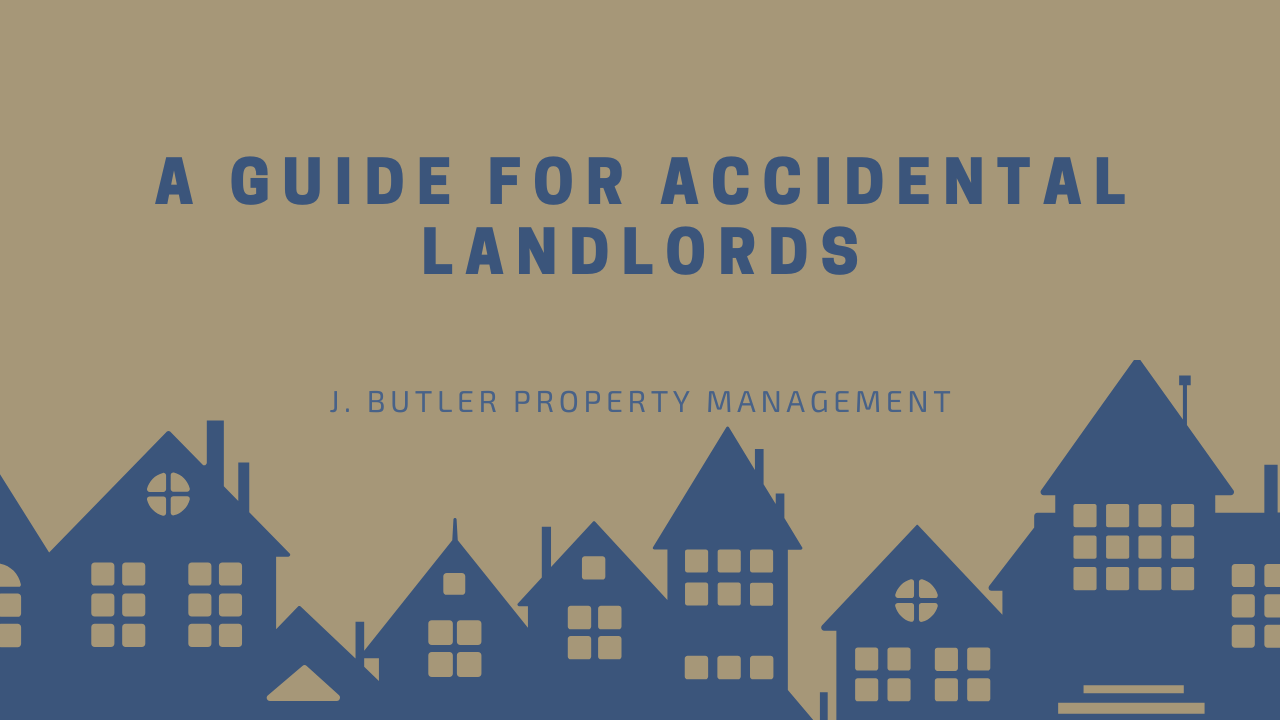
A Guide for Accidental Landlords
September 5, 2025
A Guide for Accidental Landlords
Key Takeaways
- Many landlords in Massachusetts don’t plan to rent out property but find themselves in the role unexpectedly.
- Staying on top of legal, financial, and maintenance responsibilities is key to protecting your property and your income.
- Building a support network of local experts makes property management easier and more effective.
- Partnering with a trusted company like J. Butler Property Management helps accidental landlords stay organized and maximize returns.
Becoming a landlord by chance is more common than many realize. You might have inherited a property, moved for work, or found your home is now in demand as a rental. Regardless of the circumstance, J. Butler Property Management notes that managing a rental property, especially when you never intended to, can be daunting.
Understanding Your Responsibilities
As an involuntary landlord, you step into a role that carries legal, financial, and practical responsibilities. Right away, you must ensure that your property complies with Massachusetts state law, from building codes and habitability requirements to tenant rights and eviction protocols. Since regulations can vary across municipalities, especially in the Boston metro area, familiarizing yourself with local ordinances is critical.
Beyond legal compliance, your property must be safe, clean, and well-maintained. That means arranging for smoke and carbon monoxide detectors, keeping heating systems up to date, managing lead or asbestos concerns if applicable, and ensuring the property meets basic health and safety standards. Additionally, you’ll need to draft or obtain a legally sound lease, collect security deposits in accordance with state limits, and establish protocols for rent collection and maintenance requests.
On the financial side, you’re responsible for maintaining accurate records, reporting income correctly for tax purposes, and handling expenses such as property repairs, insurance, and property taxes. Without deliberate effort, it’s easy for finances to become chaotic, especially when you’re juggling these tasks alongside your regular job or personal life.
Getting Organized: A Step-by-Step Start
Here’s a step-by-step guide to ensure you are doing this correctly:
Step 1: Gather all information related to the property: title documents, any existing lease agreements, warranties, service contracts, and records of past repairs. Having this organized file at your fingertips goes a long way toward managing the property efficiently and confidently.

Step 2: Run a thorough inspection or hire a certified professional to identify any immediate repairs or safety issues. Addressing these early helps prevent small issues from turning into costly ones later.
Step 3: Know the Massachusetts legal requirements, such as security deposit limits, notice periods, and proper eviction procedures. Even if you inherited a lease in place, it’s wise to understand the rental laws in your area to ensure compliance.
Step 4: Decide on the logistics. Plan on how rent will be collected, whether via online portals, bank transfers, checks, or automated systems, and clearly communicate this to tenants. Set clear expectations with tenants for maintenance requests and response times, and consider drafting a tenant handbook that outlines house rules, contact information, and emergency procedures.
Step 5: Establish a simple but reliable bookkeeping system. Track rent payments, income, and expenses separately from your personal finances. Many accidental landlords overlook this and end up scrambling during tax season.
Common Challenges and How to Prepare
Handling tenant turnover, payment delays, or property damage can be stressful, especially if you’re new to renting. Tenant screening is essential in reducing risks. Running background, credit, and reference checks helps protect your property and peace of mind.
Maintenance surprises always occur, from major systems breaking in winter to small repairs that accumulate. Establish a trusted network of contractors, or set aside a reserve budget to handle emergencies promptly.
Evictions can be emotionally and legally complex. Massachusetts law requires specific steps, proper notice, and official process. Taking a shortcut can result in delays or legal missteps. Preparing for the possibility, even if you hope it won’t happen, is wise.
Why Location Matters: Massachusetts Rental Market Insights
Owning a rental in Massachusetts offers distinct advantages and challenges. Greater Boston boasts high tenant demand, thanks to strong job market and high quality of life. This can lead to shorter vacancy periods, an upside for accidental landlords seeking steady cash flow.

However, this demand also comes with regulations, especially in cities like Boston, Cambridge, or Somerville. Tenant-landlord laws are consistently evolving. It’s crucial to stay informed, especially about rent control efforts, local licensing requirements, and health codes.
In winter, snow and ice present real risks. It’s vital to manage snow removal and ice control to prevent accidents and liability. As an accidental landlord, you might not be accustomed to supervising plowing crews or handling frozen pipes. That’s where experienced local help makes a difference.
The Accidental Landlord’s Support Network
While it’s possible to manage a rental yourself, doing so effectively demands time, knowledge, and consistency. That’s why collaborating with professionals, especially local experts, can be transformative. Start by consulting an expert familiar with Massachusetts landlord-tenant law. They can help draft leases, outline eviction procedures, and review local ordinance compliance.
To keep your property safe and attractive, it’s wise to establish relationships with reliable HVAC technicians, electricians, plumbers, and general contractors. Local familiarity with codes and licensing is a major plus.
For bookkeeping and taxes, consider getting assistance from an expert who handles rental property finances. Their help with expense tracking, depreciation, and tax deductions can end up saving you money each year.

But the most valuable partner for a busy accidental landlord without having to deal with various individuals and professionals is a property management company. The best property management company handles the day-to-day management tasks of a rental property. They employ local experts in various areas of property management, ensuring that everything is well taken care of on your behalf.
Setting Expectations With a Property Manager
When you bring on a property manager, it’s important to clarify your needs and expectations from the start. Are you focused on minimizing vacancies, maximizing net income, or preserving long-term property value? Share your priorities early. Ask about communication protocols; how often will you receive financial reports, how quickly will urgent maintenance be handled, and who will you contact for tenant or emergency issues?
Understand their fee structure, whether it’s based on rent percentage, flat monthly rates, or itemized charges for leasing and maintenance services. Ensure it aligns with your financial goals. Request sample reports so you know what to expect in terms of income statements, expense breakdowns, and maintenance logs. Define procedures for maintenance requests, tenant notice periods, and eviction processes. Clear protocols protect both you and your tenants.
Conclusion
Accidentally becoming a landlord need not become a burden. By following this guide, you lay a firm foundation for responsible ownership. Most importantly, partnering with a trusted property management company like J. Butler Property Management can safeguard your investment, streamline your involvement, and help your rental property flourish.
With thoughtful preparation and the right support network, accidental landlords can transition into confident, efficient, and successful property owners, steering their real estate toward steady long-term returns rather than stress.
If you’re ready to simplify the process and gain expert support, consider working with J. Butler Property Management to ensure your property is managed with professionalism, care, and local expertise.


